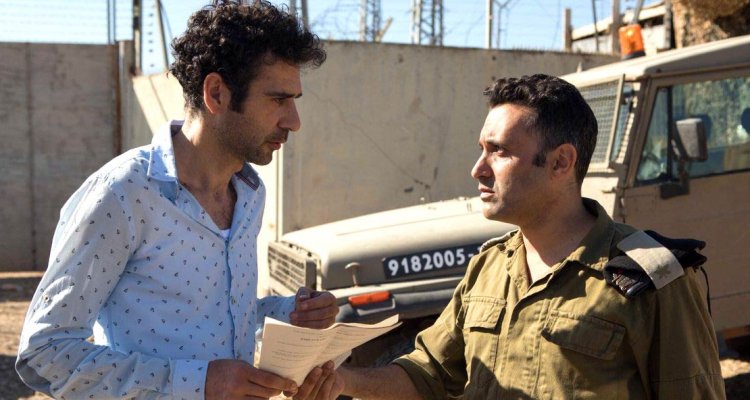Movies are at their best when the world is in decline. The World Wars, as well as the Vietnam War, brought urgent messages regarding humanity to the big screen. The mid-to-late-’60s were groundbreaking because the movies reveled in a rebellious attitude toward the America of their time. And there’s no denying that the 2010s have been troublesome for everyone. No matter where you live, or where you stand on the ideological divide, it hasn’t been easy. What has been easy, though, is going to the movies. The past few years have been a wellspring for directors with something to say. In “Tel Aviv on Fire,” writer-director Sameh Zoabi has plenty to say about the Israeli-Palestinian conflict. And like the great Ernst Lubitsch, he has, even more, to laugh at.
Whatever the state of the political world may be, there’s always something worth joking about in the world of the comedian. In this case, it’s a winning parody on how Jews and Arabs wish to be depicted on television. The film opens with an over-lit soap opera. A French spy (Lubna Azabal) is sent to Jerusalem to steal secrets from an Israeli general (Yousef Sweid). The action is clearly taking place on a TV set, and it makes for a great set up for a story that shifts between fact and farce.
The real-world hero is Salam (Kais Nashif, terrific). A human punching bag that lives with his mom and got a job from his uncle, Salam isn’t good with words. So, it comes as a shock when we find out that he’s a linguist on the hit show “Tel Aviv on Fire.” With the show being binged on both sides of the border, Salam is there to assist with the Hebrew pronunciations. He’s more important than you initially might think. With the show’s plot leading up to the Six-Day War in 1967, the schlocky producers on set–his uncle being one of them– stress that it equally appeals to the Israeli audience–despite its anti-semitic undertones. Undertones be damned, Salam sees an opportunity to make a difference.
Although in charge of the Hebrew dialogue, the language he speaks is universal. Once he advances to a writing position, Salam wants to bring peace to the show. He knows the way television shapes us and believes if he ends the show with a marriage between a Jew and an Arab, it could really make a difference. It’s a great idea, but it wasn’t his idea. At the checkpoint one day he is stopped by a security guard named Assi (Yaniv Biton). Assi’s wife worships the show the way an eight-year-old girl worships the Kardashians. So once he finds out that Salam is a writer, he starts to throw out ridiculous ideas in hopes to help. Ridiculous ideas make for great television, so Salam uses them.
It’s a great deal of fun to watch the two argue over how their country should be depicted on screen. Some of the arguments seem absurd. Assif wants to make the show’s general a romantic version of Sylvester Stallone; riding in on a tank to greet his lover. But this is parody, after all, a friendly send up to Lubitsch’s balancing act of ethics and over-the-top humor. The comedy in “Tel Aviv on Fire” is in many ways a throwback. A good-natured look at an otherwise serious subject, it almost seems novel to find a movie these days that treats all of its characters with respect.
The script, written by Zoabi and co-written by Dan Kleinman, lacks the judgment most parodies bring to the table. That’s the point, of course: that these characters are all similar; they all like cheesy television and cheesy hummus, and that it makes no sense to divide them by walls and checkpoints. Despite their differences, Salam and Assif strive to make the world a better place. And with the season finale doubling as the movie’s finale, they have a chance. It doesn’t end conventionally, but this isn’t your average comedy and Zoabi isn’t your average director. “Tel Aviv on Fire” is a summer gem unlike any other you will see this year–an invitation to laugh at a world in decline. [B+]
“Tel Aviv on Fire” opens on August 2nd at the Quad and Landmark 57 in New York and Laemmle Royal in LA.

